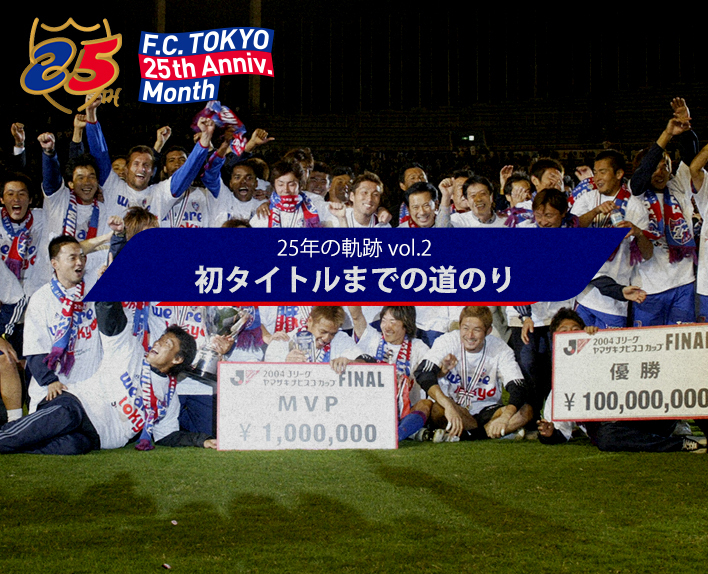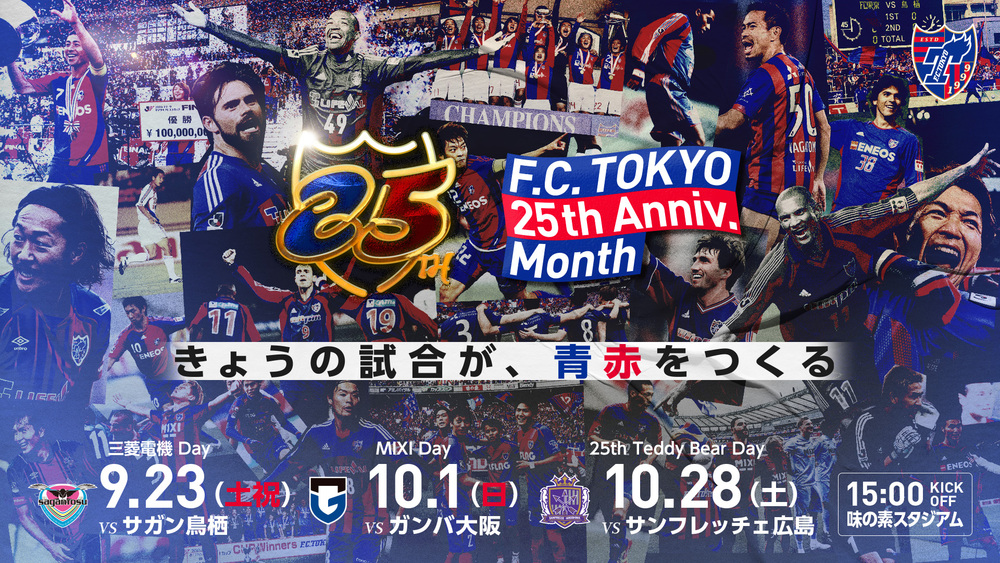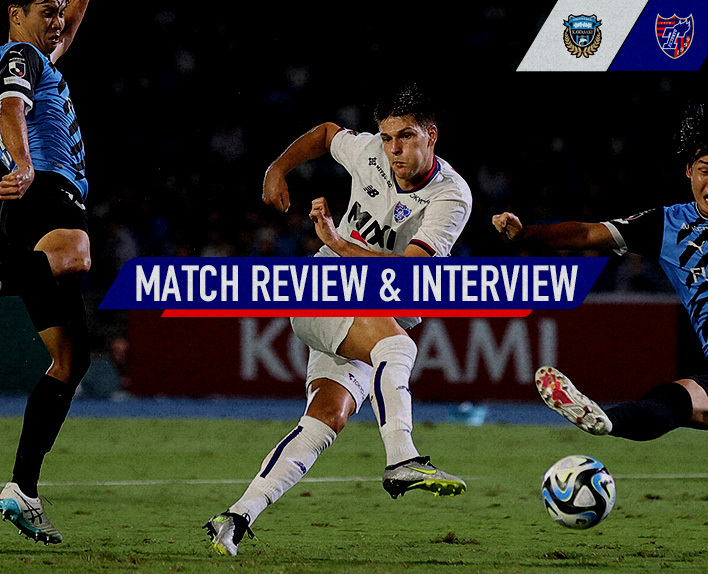In the 2000 season, which was the first challenge in the J1 League, the opening match against Yokohama F.Marinos saw Amaral earn a penalty kick that TUTO graciously took, marking the memorable first goal in the J1 League. They won 1-0 and gained momentum, creating a Tokyo whirlwind. Aiming to remain in the J1 League, the 2001 season saw the sudden addition of Kelly from Brazil. The match, which was the inaugural game at Tokyo Stadium, was won against Verdy with a goal from Wagner LOPES in the derby. Although the season ended in the mid-table, it became a two-year period that solidified the foundation of the club as a worthy participant in the J1 League.
Aiming for further advancement, in the 2002 season, Hiromi HARA was welcomed as the new head coach. The team included new additions Teruyuki MONIWA, Jean, and Naohiro ISHIKAWA, along with a diverse group of players with solid skills. Based on the tradition of strong defense, they aimed for "attacking football," and in the 2003 season, they reached the closest position to winning the league championship for the first time.
Ishikawa and Akira KAJI's side attacks pose a threat, and they achieved their best-ever 4th place in the 1st stage. While it's important not to dwell on 'what ifs,' in the 2nd stage Sec. 13 match against Gamba Osaka, every scoring opportunity for Tokyo was thwarted by the opposing goalkeeper, Naoki Matsushita. It is also true that this brought a 'genuine frustration' of what could have been if they had won here... or if they had scored just one goal in the next Verdy match...
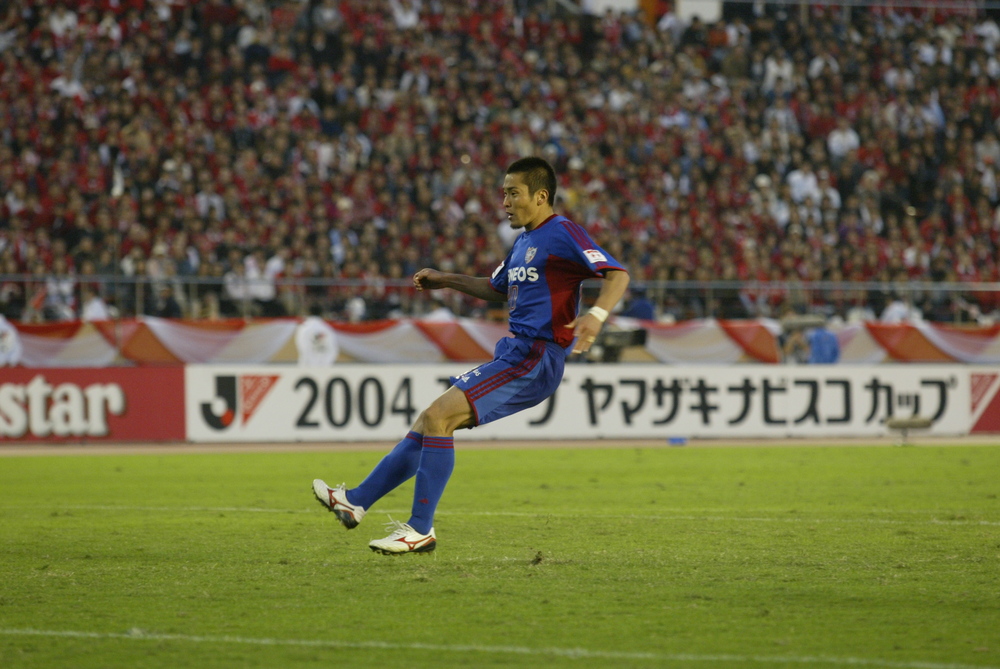
The journey to winning the club's first title in the Nabisco Cup in the following 2004 season was not an easy one. The quarterfinal match against G Osaka was delayed due to the impact of a typhoon. The Semifinal Round was postponed.
Despite struggling with bad weather and adjustments, we took a 3-goal lead in the first half against Verdy. We entered the second half with a numerical advantage after Verdy had a player sent off. However, we were caught off guard and quickly equalized. Under the tense atmosphere, the sound of Kazuki Hiramoto's shot hitting the post right after the equalizer still lingers in my ears.
Still, the trust in Hitoshi SHIOTA, who has defended Tokyo's goal through all 8 matches so far, remains unshaken, and it was Lucas's experience and composure that put an end to the fierce battle. Just 40 seconds into extra time, Yoshiro ABE won a corner kick, and Masashi MIYAZAWA's kick was met with a header. Without this V-goal, the club would not have had its first title.
In the Final Round, there were unexpected dramatic developments, including Jean's tears, Fumitake MIURA's ruthless substitution, Ryuji FUJIYAMA's outstanding performance after coming on as a substitute, and Kaji stepping up as the fifth kicker in the penalty shootout... Ultimately, it was a total team effort that secured the championship.
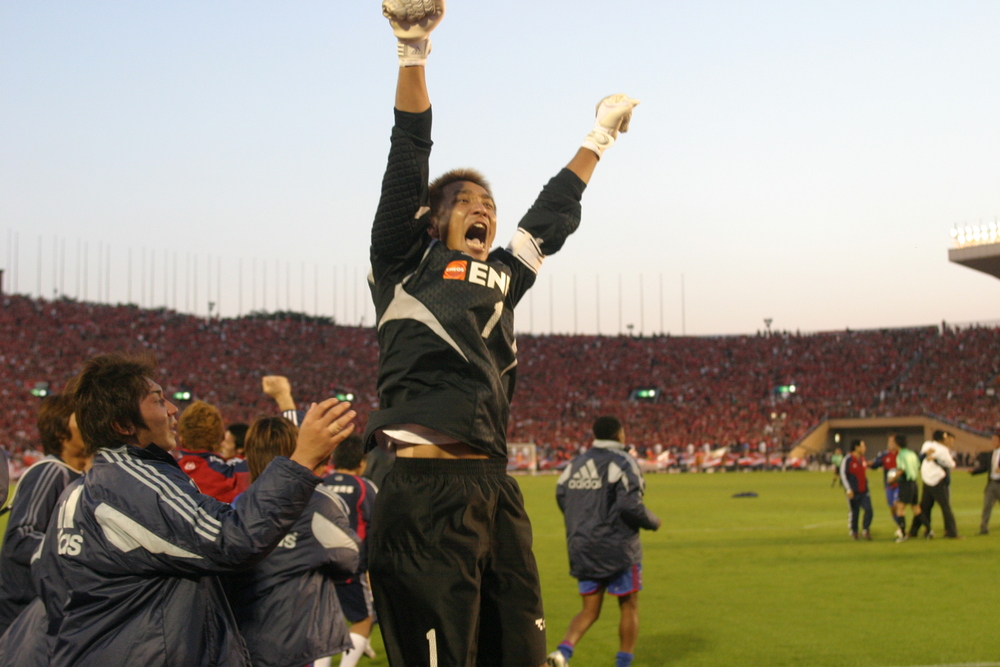
Taking this opportunity, we will change from being the pursued to the pursuers. From striving to be a team worthy of the J1 League, each of us has ignited our ambition to become a team that continues to compete for the championship.
However, Coach Hara initially said, "Tokyo is overflowing with entertainment. In order to draw attention to soccer and have people come to the stadium..." and it seems that his perspective was always aligned with the viewers.
The team is still far from maturity, and there was a certain instability that made us anxious. Nevertheless, they tried to run until the end, showing determination and spirit to aggressively reclaim the ball even after losing it. Tokyo Verdy expressed and shared the pure charm and refreshing joy of soccer. Isn't that the essence of Tokyo that continues to be passed down to this day?
Text by Yu Fujiwara (Freelance Writer)
[25 Years of History] Special Column Here
25 Years of History vol.1 Things We Must Not Forget
25 Years of History vol.3 Blue Tokyo
